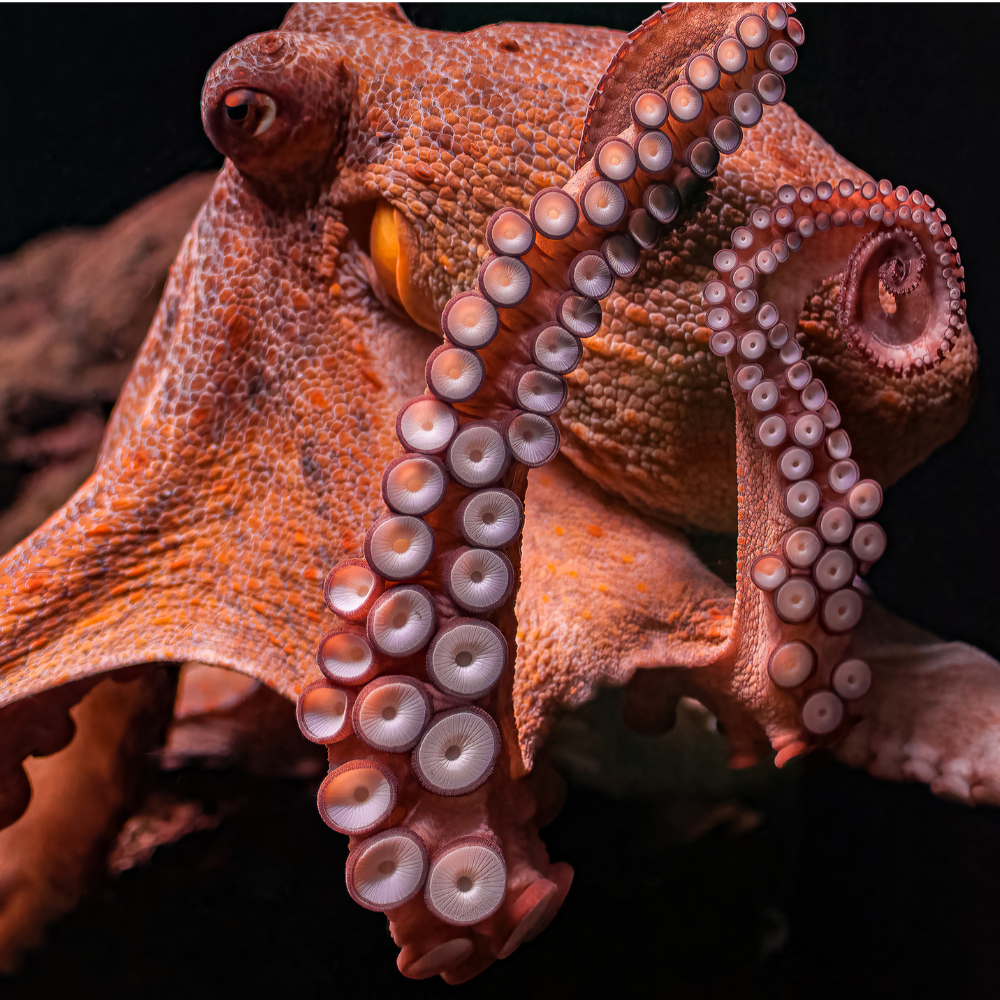
Planned construction of the first octopus farm in the world has scientists deeply concerned for the welfare of these renownedly intelligent creatures. According to confidential documents viewed by sources, the farm in Spain's Canary Islands would raise approximately one million edible octopuses annually. They have never been intensively farmed, and some scientists consider the proposed method of slaughtering them in icy water to be inhumane.
The Spanish multinational corporation behind the plans denies that the octopuses will be harmed. Eurogroup for Animals distributed to sources, the confidential planning proposal documents from Nueva Pescanova. Nueva Pescanova submitted the proposal to the General Directorate of Fishing of the Canary Islands, which has not yet responded.
Octopuses captured in the wild with pots, lines, and traps are consumed throughout the world, including in the Mediterranean and Asia. Decades have been spent trying to discover the secret to breeding them in captivity.
Nueva Pescanova announced in 2019 that it had made a scientific breakthrough, despite the fact that the larvae require a carefully controlled environment and only consume live food. Already there is opposition to the prospect of intensive octopus farming: lawmakers in the U.S. state of Washington have proposed banning the practise before it even begins.
The octopuses, which are solitary creatures accustomed to the dark, would be kept in tanks with other octopuses, at times under constant light, according to Nueva Pescanova's plans. The species octopus vulgaris would be housed in approximately one thousand communal tanks in a two-story building in the port of Las Palmas, Gran Canaria. According to the documents, they would be killed by placing them in containers of water kept at -3 degrees Celsius.
As octopuses have never been farmed commercially, there are currently no welfare regulations in place. However, studies have shown that this method of killing fish with "ice slurry" results in a slow and stressful death. According to the World Organisation for Animal Health, it "results in poor fish welfare," and the Aquaculture Stewardship Council (ASC), the leading certification scheme for farmed seafood, has proposed a ban unless fish are stunned beforehand.
Some supermarkets, including Tesco and Morrisons, have already ceased selling fish that has been killed using ice. Professor Peter Tse, a neurologist at Dartmouth College, told sources: "Using ice to kill them would result in a slow death... It would be cruel and therefore should not be permitted." Adding that they were "as intelligent as cats," he suggested that a more humane way to kill them would be to club them over the head, as many fishermen do.
Nueva Pescanova desires to produce 3,000 tonnes of octopus per year for "premium international markets" such as the United States, South Korea, and Japan. This equates to approximately one million animals, with 10 to 15 octopuses living in each cubic metre of tank, according to Compassion in World Farming (CiWF), a campaign group that has analysed the proposed expansion. Nueva Pescanova estimates in its documentation that the mortality rate will be between 10 and 15%.



